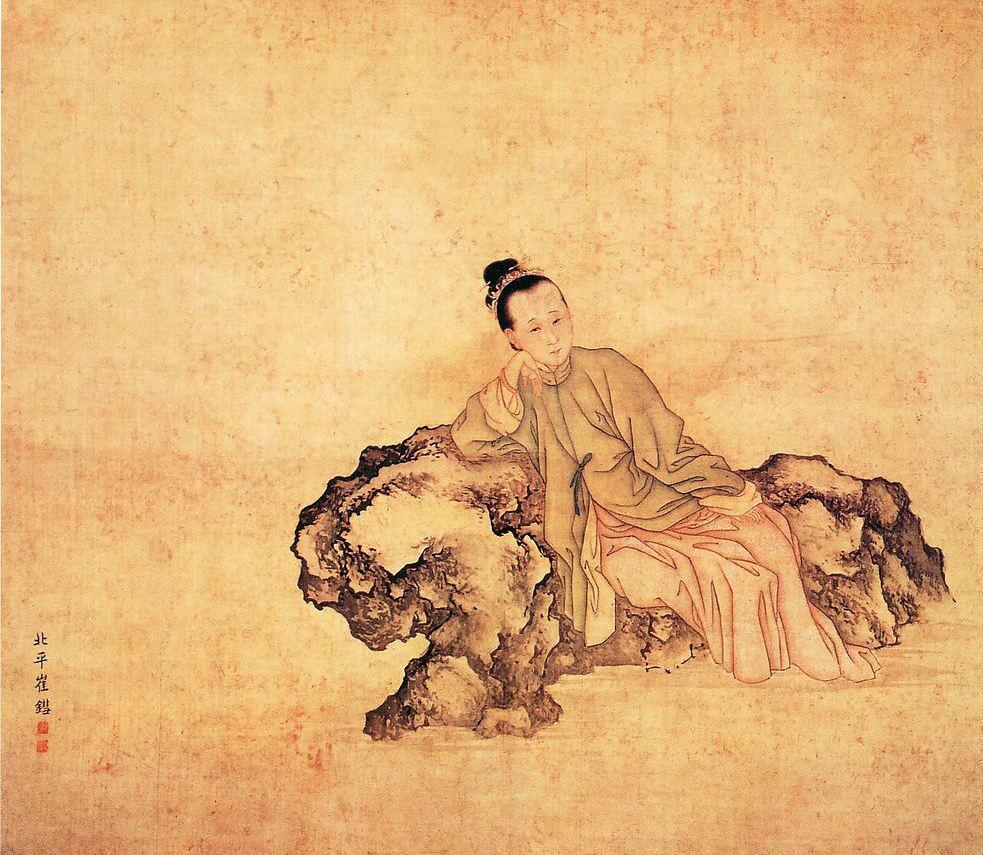Poet Li Qingzhao exemplified ‘Wei-Jin’ demeanor

Li Qingzhao by Cui Cuo (Qing Dynasty)
Li Qingzhao (1084-1155) was a talented female writer and poet in the Song Dynasty (960-1279). She never paid tribute to any sages but instead promoted the idea of following one’s own heart, while adopting a particular demeanor known as “Wei-Jin.”
“Wei-Jin demeanor” refers to the straightforward, open style of scholars in the Wei (220-265) and Jin (265-420) dynasties. Li closely followed their footsteps. She broke the chains of the patriarchal society and revealed her writing abilities. She was both emotional and intellectual and firmly established herself as being capable of deep thought. At that time, conservative Confucian moralists ceaselessly launched personal attacks on her. Today she is often sensationalized as an entertaining historical figure. However, no one has truly knocked her down because her real value has been commemorated by history.
Li’s unrestrained character made her different from other ordinary women and others were impressed by her wild personality. When she was young she became immersed in drinking. Her indulgence was manifested in her poetry collection Like a Dream, written in the ci-poetry style. Her work “Drunken not knowing the way home at dusk” represents her preference for unconventional and unrestrained behaviors and freedom of both mind and body. In terms of talent, her ci-poetry is not overly restricted by the genre; in terms of courage, she mocked senior scholars and criticized the politics of the authorities while maintaining a very strong patriotic heart; in terms of knowledge, she had a thinker’s sagacious perception; in terms of ability, her collection of ci-poems Shuyu Ci established her unique “Yi-an style.”
Besides words like talent, courage, knowledge and ability, Li’s legendary life also became known by the term “scholarship.” Li was an epigrapher. She and her husband Zhao Mingcheng (1081-1129) collected, examined and appreciated epigraphy, calligraphy and painting. The couple shared their interests together and Li was immersed in studying epigraphy for more than 30 years. Her extensive knowledge of epigraphy made her outstanding. In return, the knowledge of epigraphy exerted a far-reaching influence on Li’s aesthetic tastes. Her ci-poetry also benefited from the art of epigraphy. Epigraphy is a linear art form and ci-poetry is generally classed as a form of musical literature. Although the art has various genres, they both focus on rhythm and pursue pure beauty.
Despite her gender, her stories were collected in the chapter on art and literature of History of the Song Dynasty. But only a few words were left about her in the biography of Li Gefei (c. 1045-c. 1105), her father and a famous litterateur in the Northern Song Dynasty (960-1127). Although her talents cannot be completely encapsulated in the records left behind in the History of the Song Dynasty, Li Qingzhao, a leading female poet of the time, placed herself into the official history records and shared this platform with male scholars, which was an extraordinary achievement.
Her intellectualism is prominently expressed in her work On Ci-Poetry. She put forward the unique style of ci-poetry and defined the boundaries between poems and ci-poems for the first time, which established the independence and self-sufficiency of the ci style. A poem is a poem. Ci-poetry is of its own genre. In essence, Li’s theory on the “unique style of ci” represents ideas of style, while its philosophical foundation is based on intellectual thinking. The proposal of the “unique style of ci” clearly distinguishes ci-poems from poems and reflects the complexity of her thought process. Although there emerged numerous talented women in Chinese literary history, a very few female writers could be capable of such an intellectual demeanor. But Li is an exception.
Liu Yonggang is from Liaoning Normal University.

 PRINT
PRINT CLOSE
CLOSE